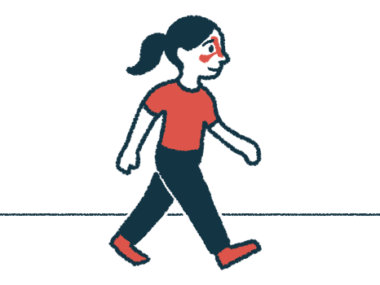Depression Is Tough, but There Is Always Hope
Written by |

Leonardo Em/Shutterstock
First, let me start by saying depression sucks. There is nothing fun, likable, or enjoyable about it. Depression is an illness no one is immune to. It can be very easy to fall into, and even more difficult to get out of without the right help.
Depression can be a result of a variety of causes. In this column, I want to focus on pituitary adenomas and my experience with depression.
There is a misconception that people who struggle with depression are weak-minded. This is false. In my experience, depression felt as if it had come out of nowhere. But the more I learned about the effects of a pituitary adenoma, I came to understand that my depression was not just in my mind.
Depression does not discriminate. It does not care about your race, gender, political affiliation, age, or how successful you are. It can consume you.
Self-medicating is not the answer
The hardest part for me was acknowledging that I had depression. My wife and the rest of my family could see that something wasn’t right with me, yet they remained as supportive as possible. I was ignoring the symptoms because I didn’t want to believe it could happen to me. Believing I could deal with it on my own, I started to self-medicate.
The idea of self-medicating is usually associated with ingesting a substance to temporarily relieve the pain that comes with depression, because we just want to feel better. I was using marijuana to numb the pain and escape into my own world, but there was one problem: The root of the issue wasn’t being addressed.
Later, my problem was initially addressed upon completion of transsphenoidal surgery to remove a tumor on my pituitary gland — or so I thought. But the anger of how things had rapidly changed in my life, the changes my body went through, my inability to obtain employment, losing intimacy with my wife, and struggling financially — none of these were solved by self-medicating. In fact, it was making things in my life more difficult.
Eventually, I was exhausted, so I decided to be intentional in making a change.
Structure, exercise helped me regain confidence
Reintegrating structure and self-discipline into my life was my first step. I never wanted to feel that way again, ever. My pituitary tumor brought chaos and disruption into my life. It put me in unfamiliar territory, which made me feel hopeless. My mindset was “It is what it is.”
Becoming active again was important, but also scary. When I was working out with the tumor, my body was breaking down. I remember the times I couldn’t walk a certain distance due to stiffness in my back and becoming winded. Later, my goal was to make a little progress each time. One lap turned into two, two laps turned into a mile, and a mile turned into three. Today, I walk up to 10,000 steps daily.
Gratitude
Practicing gratitude has become a part of my lifestyle. It’s what I do to start my day, even when I don’t feel like it. It can be easy to forget the things we have when in a depressed state. This has allowed me to understand the transition my life has taken, as well as to reflect on how far I have come.
I completely understand that pituitary adenomas affect everyone differently, and I don’t want to be insensitive to anyone who is still struggling with them. There is help and support, and you are not alone. For those who have found the strength, be sober, be vigilant, and keep thriving.
If you are struggling with depression and need someone to talk to, SAMHSA’s National Helpline, 1-800-662-HELP (4357), offers treatment referrals and information 24/7.
***
Note: Cushing’s Disease News is strictly a news and information website about the disease. It does not provide medical advice, diagnosis, or treatment. This content is not intended to be a substitute for professional medical advice, diagnosis, or treatment. Always seek the advice of your physician or other qualified health provider with any questions you may have regarding a medical condition. Never disregard professional medical advice or delay in seeking it because of something you have read on this website. The opinions expressed in this column are not those of Cushing’s Disease News or its parent company, Bionews, and are intended to spark discussion about issues pertaining to Cushing’s.







Angel Martin
Thank you for sharing your testimony. It made me feel not so alone while suffering the affects of a pituitary tumor.